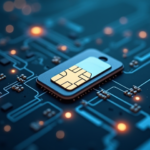Security forms the crux of VPN services, as they are integral for safeguarding data, protecting privacy, and preserving internet freedom. This importance underscores why guidelines from authoritative bodies such as the National Security Agency (NSA) and the Cybersecurity & Infrastructure Security Agency (CISA) are invaluable. Today, we explore these institutions’ published security guidelines for securing VPN servers.
The Importance of Securing VPN Servers
A VPN server acts as the gateway to the secure tunnel that your data travels through. If the server is compromised, the security of your data is at risk. Therefore, implementing strong security measures for your VPN servers is paramount.
NSA & CISA’s Security Guidelines
The NSA and CISA have offered several important guidelines for securing VPN servers, which revolve around three main areas: updating and patching, configuration, and secure usage practices.
1. Updating and Patching
Keeping VPN servers up-to-date is vital. Regular updates fix vulnerabilities that hackers might exploit. Apply patches as soon as they’re released, ensuring that your VPN server stays protected against the latest threats.
2. Configuration
A correctly configured VPN server offers optimal security. The NSA and CISA recommend disabling unused or unnecessary services and protocols. Also, ensure that the server only uses strong cryptographic standards and secure remote logging capabilities.
3. Secure Usage Practices
Beyond server configurations, secure usage practices play a key role in maintaining a secure VPN environment. Encourage users to create strong, unique passwords and leverage multi-factor authentication. Establishing and enforcing these practices can significantly enhance the security of your VPN server.
Implementing the Guidelines with GnuVPN
At GnuVPN, we take these guidelines seriously and apply them to ensure that our services remain secure. We offer regular updates and patches, maintain a robust configuration process, and promote secure usage practices among our users.
Our VPN servers only use up-to-date and secure protocols, and we’re continuously working on fortifying our security measures. We prioritize strong encryption, and our logging practices align with the recommended standards, ensuring that your data remains secure and private.
GnuVPN also encourages users to adopt strong passwords and offers multi-factor authentication to add an extra layer of security. With these measures, we aim to offer a secure VPN experience that is in line with the best practices suggested by the NSA and CISA.
The NSA and CISA guidelines provide a robust framework for securing VPN servers. Following them not only increases the security of the VPN servers but also enhances the overall trustworthiness of the VPN service. At GnuVPN, your security is our priority, and we’re committed to providing a safe and private browsing environment.





